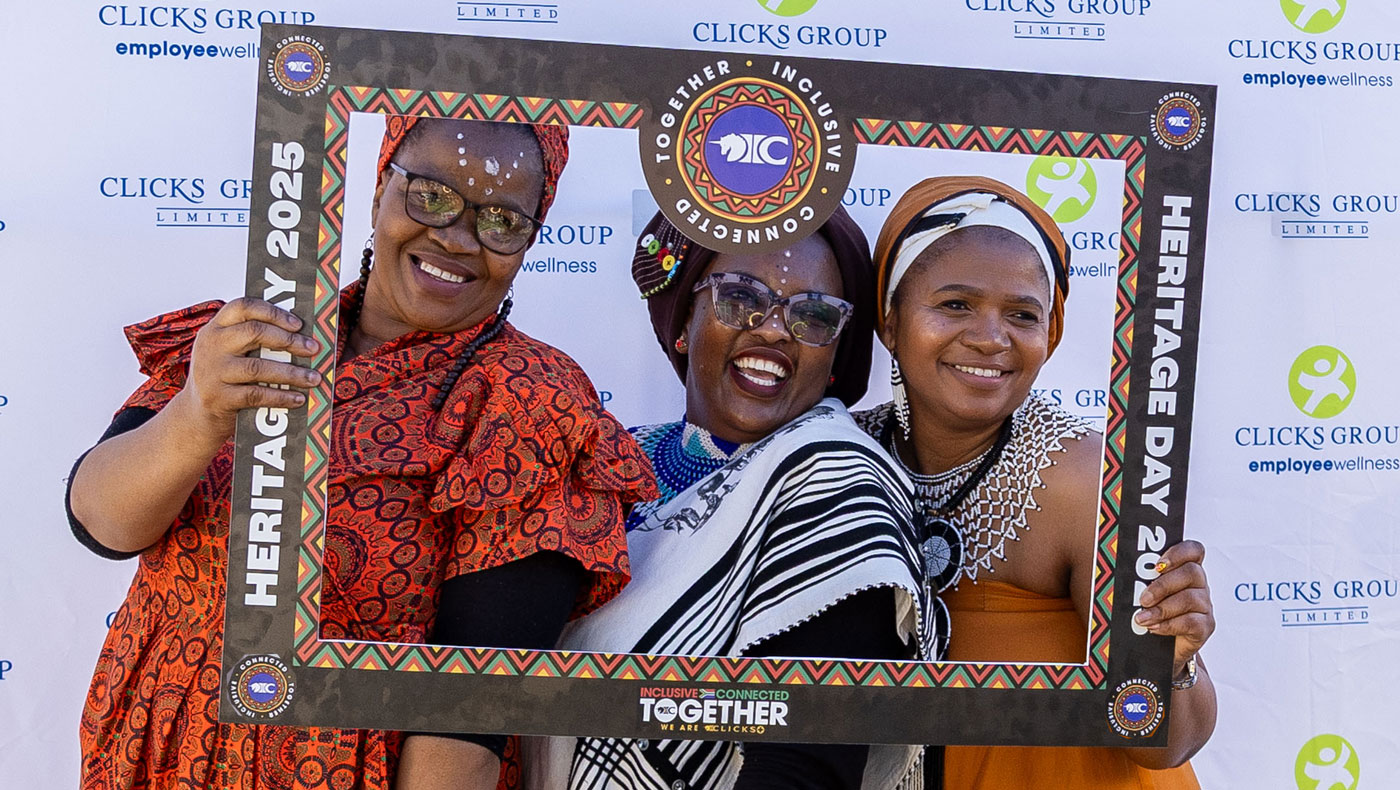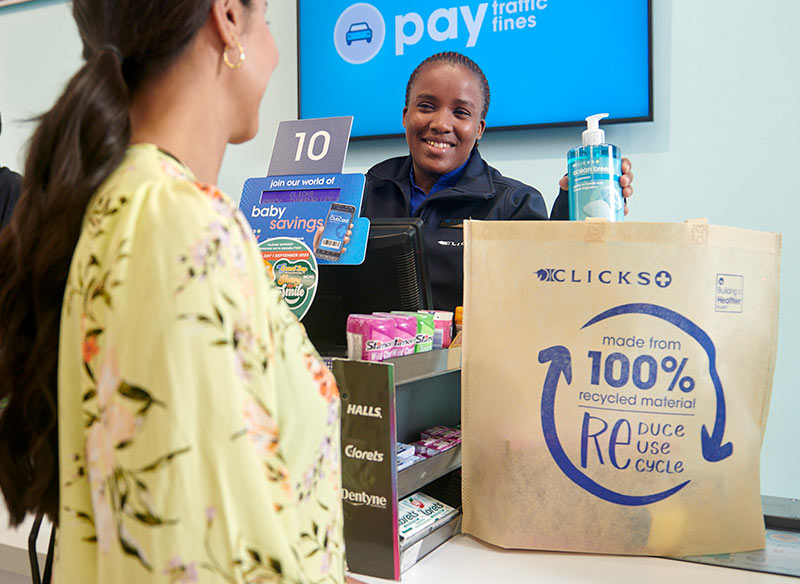Commitment to sustainability
Sustainability is a strategic priority for the group, with environmental, social and governance (ESG) principles guiding decisions and operations to create long-term stakeholder value. Environmental stewardship, social impact and ethical governance are integral to the group’s operations.
During the year the group advanced its framework through a double materiality assessment aligned with IFRS S1, S2 and GRI standards, enabling it to anticipate and respond to sustainability-related risks and opportunities. Deloitte’s independent review noted progress on S1 and S2 alignment, while the Endangered Wildlife Trust’s Biodiversity Readiness Assessment provided clear pathways to integrate biodiversity into operations and supply chains.
The group made noteworthy progress in diversity and inclusion by investing meaningfully in employee development and maintaining disciplined environmental compliance. The sustained inclusion in the FTSE4Good Index for the ninth consecutive year reflects the group’s eminence as a responsible, forward-looking business.
With strong governance, reliable data and active stakeholder engagement, the group is well positioned to refine its ESG strategy, stay ahead of regulatory shifts and lead in meeting the evolving sustainability expectations of its stakeholders.
The group maintained its BBBEE level 3 rating despite a reduction in the equity ownership element, arising from the loss of 50% of the continued recognition for the Employee Share Ownership Programme, which operated from 2011 to 2018. This impact was largely mitigated through the maximisation of enterprise, supplier and socio-economic development contributions, together with improvements in the preferential procurement element.
Southern Africa faces a range of challenges, including limited access to quality and affordable healthcare, fiscally constrained governments, widening inequality, electricity insecurity and tough economic environments. These factors reinforced the imperative for the group to accelerate the delivery of innovative and scalable solutions in these areas.
Ongoing, meaningful engagement with stakeholders remains at the core of the sustainability programme, ensuring that their priorities and expectations continue to shape and guide the group’s strategic direction.
This section provides a succinct overview of these efforts, while the group’s full sustainability report presents a more detailed account of the initiatives implemented to advance sustainability and create long-term value for stakeholders.
Sustainability strategy
The group’s sustainability strategy delivers measurable social and environmental impact through four priorities: building a trusted, accessible healthcare network; minimising the environmental footprint; sourcing products that uphold brand integrity; and empowering motivated, passionate people.
A structured, phased implementation plan is embedded within the strategy to progressively enhance alignment with IFRS S1 and S2 standards. This ensures the group systematically strengthens its sustainability disclosures, meets evolving global reporting requirements, and embeds best practice into governance and decision-making processes. By integrating this progression into the core sustainability strategy, the group is positioned to anticipate regulatory developments, maintain transparency for stakeholders and reinforce its leadership in sustainable business practices.
The strategy also aligns with the United Nations Sustainable Development Goals (SDGs) and the voluntary JSE Sustainability Disclosure Guidelines, providing a clear link between the group’s priorities and internationally recognised sustainability objectives. This alignment ensures the strategy addresses global imperatives such as climate action, responsible consumption and inclusive economic growth, while meeting South Africa’s evolving corporate governance and reporting expectations. It reflects a commitment to creating shared value that benefits the communities in which it operates and the environment.
Our sustainability strategy
Management approach
The group integrates sustainability into its business strategy, aligning initiatives with the SDGs, JSE Sustainability and Climate Change Disclosure Guidance, and the IFRS S1 and S2 sustainability disclosure standards. Disclosure is further informed by King IV, GRI, United Nations Global Compact and CDP.
Oversight for sustainability is the responsibility of the board. The social and ethics committee monitors ESG compliance and stakeholder matters; the audit and risk committee oversees climate risk, sustainability issues and related controls; and the remuneration committee considers internal equity, responsible reward frameworks, as well as the alignment of incentives with strategic delivery. The group executive committee is accountable for performance, supported by a cross-functional sustainability forum that sets standards, provides shared services, monitors progress and collates ESG data for disclosure. Selected ESG metrics are verified by independent third parties. Sustainability-related policies, including the environmental and climate change policy, are integrated into the business and used to guide operations.
A phased roadmap strengthens alignment with IFRS S1 and S2, informed by Deloitte’s assessment of reporting readiness. The Carbon Neutrality Management Plan underpins the group’s climate transition pathway, detailing reduction targets and actions to achieve net-zero emissions by 2050. Biodiversity governance has been enhanced through the Endangered Wildlife Trust’s Biodiversity Readiness Assessment and recommendations.
Active stakeholder engagement and regular risk assessments ensure the group remains resilient, responsive and well positioned for sustainable growth.

BBBEE status
The group engaged Empowerlogic, an independent accredited rating agency, to conduct a review of the group’s BBBEE status for the 2025 financial year. The group maintained its BBBEE level 3 rating.
BBBEE scorecard
Analysis of BBBEE scorecard elements

Sustainability performance
Aligning remuneration with ESG performance
The short-term and long-term incentive schemes are aligned with ESG goals, incorporating targets to ensure that executive leadership is held accountable for achieving sustainability targets. Incentive payments can be modified downwards by a maximum of 15% if ESG performance metrics are not achieved (refer to pages 10 and 12 of the remuneration report).
Risk assessments and materiality
The group’s materiality review considers both investor value and impact on people and the environment. Material ESG issues are identified annually through stakeholder engagement and risk assessments conducted by executive management and reviewed by the board. These inform report content, strategic decision-making and resource allocation across the group.
ESG risks and opportunities
ESG principles are embedded in the group’s strategy and guide how we create long-term value. In 2025 the group enhanced its risk management approach to explicitly integrate ESG risks and opportunities into strategic planning. Drawing on the World Economic Forum’s 2024 Global Risks Report and through structured workshops with leadership, functional experts and ESG specialists, the group identified and mapped ESG risks and opportunities to its top 10 material issues, ensuring alignment with its strategic pillars.
The group’s ESG risk landscape reflects both global mega trends and region-specific realities. Environmental risks include extreme weather events, increasing emissions and resource constraints, all of which threaten supply chain resilience and operational continuity. Social risks stem from healthcare accessibility challenges, macroeconomic volatility and employee well-being pressures. Technological risks include cybersecurity threats, the disruption associated with rapid advances in artificial intelligence and competition from global online retailers. Governance and regulatory risks reflect the growing complexity of ESG reporting, heightened expectations for ethical sourcing and potential consequences of non-compliance with emerging standards. Each risk has been mapped to relevant material issues such as governance, trading environment, supply chain and brand reputation.
Alongside risks, the group identified key ESG opportunities that support long-term value creation. Environmental opportunities include emissions reduction, renewable energy integration, packaging innovation and adoption of circular economy practices. Social opportunities arise from the group’s footprint and ability to expand healthcare access, provide wellness solutions and strengthen the employee value proposition. Technological opportunities lie in leveraging artificial intelligence, automation and data analytics to improve customer experience and operational efficiency. Governance opportunities include enhancing transparency in ESG reporting, embedding sustainability standards within the supply chain and strengthening board oversight. These opportunities are cross-referenced to our material issues, reinforcing their relevance to our strategy and growth ambitions.
Double materiality
To align with international best practice and evolving regulatory expectations, the group initiated the adoption of the principle of double materiality in 2025. This approach evaluates ESG issues from two perspectives: financial materiality, which considers how ESG factors may affect enterprise value and business performance; and impact materiality, which assesses the significance of the group’s actual or potential impacts on people, communities and the environment. For a healthcare retailer such as clicks this dual perspective is critical, as our operations not only respond to financial and market drivers but also directly influence patient well-being, workforce livelihoods and the sustainability of natural resources.
The double materiality assessment is informed by both internal expertise and external engagement. While stakeholder input in 2025 was limited to a subset of groups, the process will be broadened in future to include customers, employees, suppliers, regulators, industry associations and community representatives. Insights from these engagements and structured workshops informed a qualitative assessment of the financial and societal impact of ESG issues, ensuring that the resulting materiality matrix reflects topics most relevant to long-term
value creation and our responsibilities as a healthcare retailer.
To operationalise this approach the group developed thresholds for both financial and impact materiality. Financial materiality is measured against profit before tax and categorised from low to high, while impact materiality considers the scale, scope and duration of effects on stakeholders. High-impact issues include long-term or widespread consequences, such as breaches of patient data confidentiality or environmental contamination, while moderate impacts reflect shorter-term or localised challenges, such as delays in medicine delivery. Low impacts are primarily operational by nature, such as inefficient energy use in offices.
Applying these perspectives, the 2025 double materiality assessment mapped all identified ESG risks and opportunities against both financial and stakeholder impacts. This dual-lens approach ensures the group prioritises issues that are both commercially significant and socially meaningful, reinforcing resilience, safeguarding stakeholder trust and advancing sustainable value creation.


